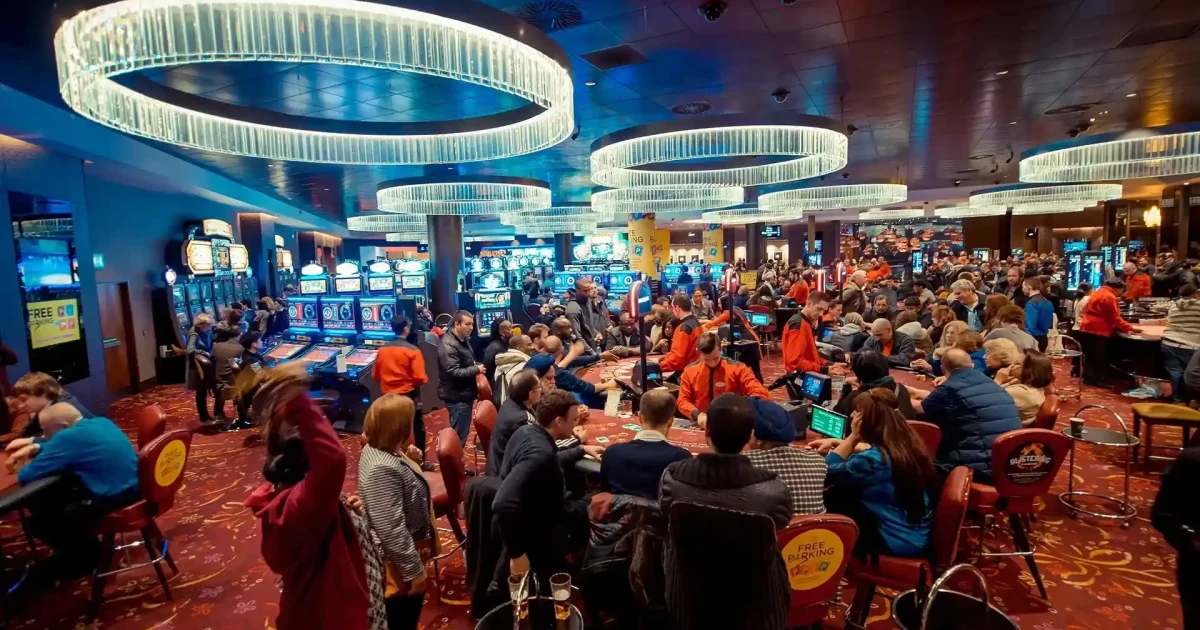
Gambling in casinos has long been a topic of interest and debate, attracting millions of players around the world. With a mix of luck, skill, and the thrill of risk, casino games offer an exhilarating escape from everyday life. However, as entertainment becomes ever more accessible, it invites a more thorough examination of the morality surrounding these games.
At the heart of the debate lies the question of whether casinos promote responsible gaming or exploit at-risk individuals. The allure of potential winnings versus the reality of losses can create a challenging dynamic, and understanding this balance is crucial for both players and operators. As we delve into the ethics of casino gaming, we will explore the duties of casinos, the impact on society, and the measures that can be taken to foster a healthier gaming environment.
The Impact of Casino Gaming on Society
Casino gaming has a notable influence on society, affecting not only the financial landscape but also social behaviors and local frameworks. The funds generated from casinos can lead to job creation and boost regional economies, as they provide numerous employment opportunities in different sectors including food and beverage, entertainment, and shopping. However, while the economic advantages can be significant, communities often grapple with the potential negative impacts that arise from increased gambling activity.
Additionally, the presence of casinos can lead to an increase in gambling addiction, presenting significant challenges for players and families. The excitement of casino games can quickly evolve into a habitual habit, affecting personal relationships and leading to financial instability. Many individuals may find it difficult with the loss of control over their gambling behaviors, resulting in a need for community support services and interventions to address this growing issue. The social cost of addiction can ripple through families and neighborhoods, creating an urgent need for responsible gaming initiatives.
In addition to the economic and social ramifications, casino gaming often reflects cultural attitudes towards uncertainty and leisure. https://8ok.pink/ It can encourage a sense of excitement and leisure, attracting tourists and boosting tourism. However, this allure may also mask the broader implications of gambling as a form of entertainment, raising ethical questions about its promotion and availability. As communities weigh the benefits and drawbacks of casino gaming, the need for sensible approaches and oversight becomes increasingly critical in ensuring that the beneficial elements are maximized while reducing the negative effects.
Ethical Concerns in Betting Practices
The ethics of gambling gaming often revolve around the risk for dependency and its consequences on people and families. Gambling can lead to significant monetary distress, impacting not only the betters but also their families. As people become caught in the appeal of winning, many lose track of their budget, which can result in catastrophic results such as insolvency. This raises moral questions about the responsibility of casinos in fostering responsible gambling practices and offering support for those who may be dealing with betting addiction.
Another major concern is the advertising of betting to at-risk groups. Casinos often target low-income people or communities with the offer of fast gains, which can perpetuate patterns of financial struggle and despair. In this context, the morality of marketing strategies used by casinos come under examination, as they may take advantage of the desperation of people seeking an way out from economic troubles. This exploitation raises moral questions about the honesty of the betting industry and its responsibility to safeguard its most at-risk patrons.
Additionally, the impact of casino operations on society as a entirety cannot be ignored. While some argue that gambling establishments create employment and boost local economies, others point to the community costs associated with problem gambling, increased criminal rates, and a strain on public resources. Balancing economic benefits with the potential for community issues presents a complex ethical dilemma for policymakers and gambling operators alike. The challenge lies in finding a ethical approach that takes into account the well-being of people and communities while still allowing for the pleasure of gambling gaming.
Oversight Structure and Obligations
The regulatory structure related to gaming operations is designed to ensure justice, honesty, and gambler security. Various government agencies and casino commissions establish and implement regulations that dictate how casino activities function, the standards for activity creation, and the processes for managing winnings. These regulations differ by locale but typically involve licensing requirements for businesses and stringent measures to prevent fraud and dishonesty.
In addition to oversight bodies, casino businesses bear significant duty in maintaining ethical standards within their establishments. They must implement ethical gaming practices that promote player protection and consciousness, including providing self-limitation options and sharing information about the risks related to betting. Establishments are also obligated for educating workers to identify signs of difficult betting and be aware of the appropriate steps to help patrons in distress.
Moreover, transparency in gaming operations is essential for gaining and keeping public confidence. Operators should provide clear data about the chances of operations, advertising offers, and any associated risks. By promoting an culture of transparency and trust, operators can help lessen the likelihood harmful impact of gambling while boosting the complete gambling experience for all gamblers.
